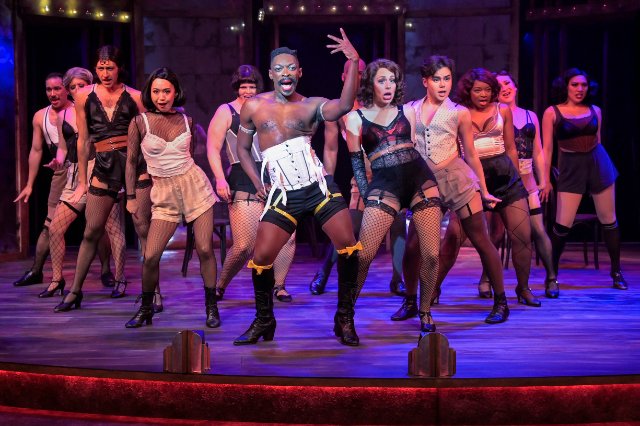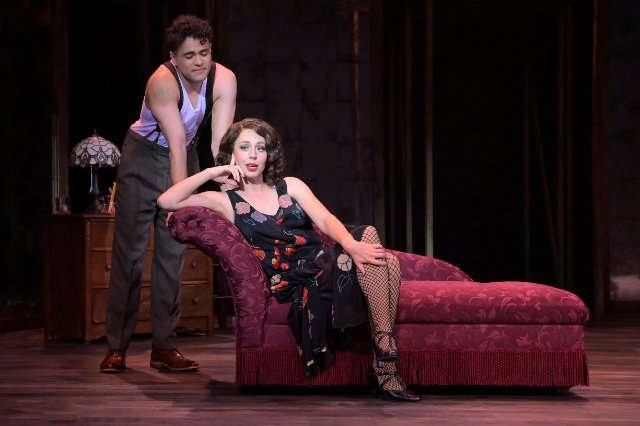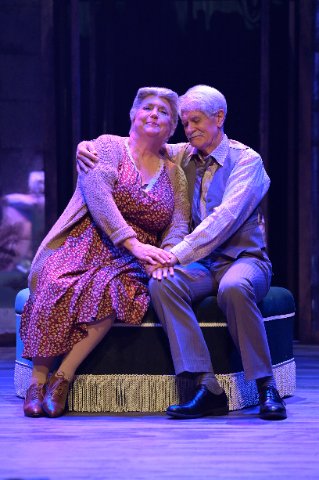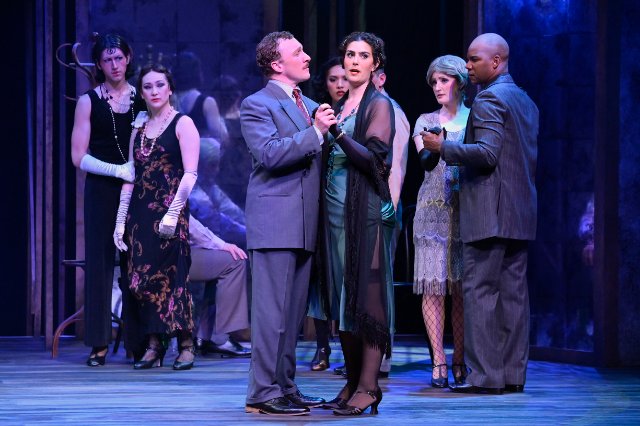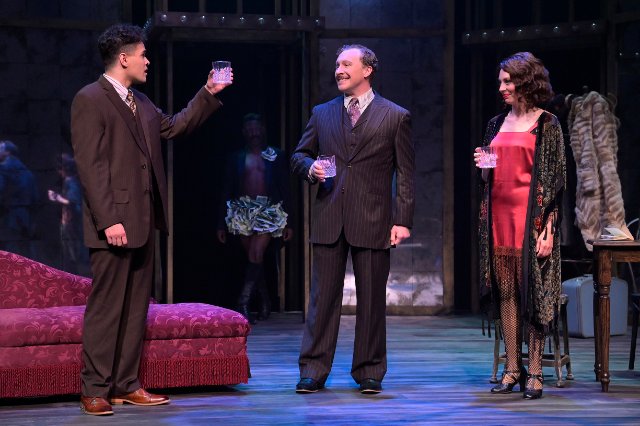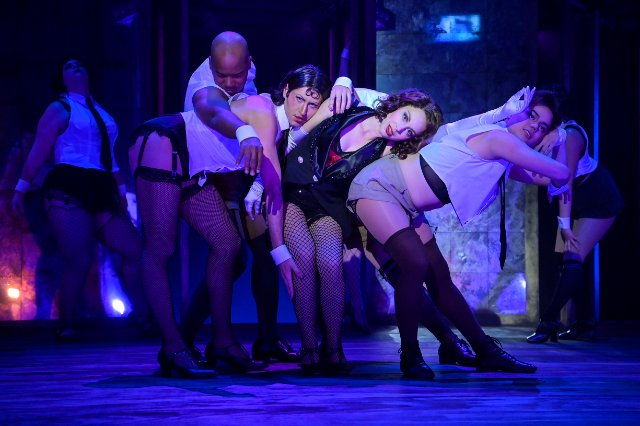Cabaret at Lesher Center for the Arts
Hedonism and Persecution in Between the Wars Germany
By: Victor Cordell - May 29, 2024
Hope, change, and tumult reigned in the United States in the 1960s with great strides in civil and women’s rights, the rise of counterculture, the sexual revolution, the Vietnam War, assassinations of great leaders, and more. Much of musical theater continued the themes of the previous decade, but some new works turned deeper and darker. In 1966, “Cabaret” plumbed the depths of what was considered sex and drug depravity within a theme about the vulnerabilities of groups vilified by Nazis in pre-World War II Berlin, notably Jews.
Having had a long Broadway run, many awards, and numerous revivals on the Great White Way and around the world, “Cabaret” belongs in the pantheon of great stage musicals. Based on writer Christopher Isherwood’s experiences in Weimar and early Nazi Germany, it acts as a chilling reminder of the fragility of freedom and democracy.
The Center Rep production of “Cabaret” hits all of the right notes. The look is fitting; the actors in key roles excel; Director Marcus Potter demonstrates a fine sense of interaction and stage usage; and Choreographer Jessica Chen captures the dance movement of hedonism with undulations and a little high kick and automaton thrown in. The orchestral sound from Music Director Eryn Allen’s dozen or so instrumentalists was so full and exacting that several patrons peeked into the pit opening at intermission to make sure there were live musicians and not piped music.
The structure consists of a main plot, a couple of sub-plots, and a Greek chorus of one. But in this case the “one” is a charismatic but nameless character that became the career role on stage and screen for Joel Gray – The Emcee at the Kit Kat Klub.
In this production, non-traditional casting employs a black man, Rotimi Agbabiaka. For those so-called traditionalists, let’s note that this depiction adds only one more layer of disbelief to suspend, and this actor nails the characterization with great confidence from the iconic opening song sequence of “Wilkommen, Bienvenue, Welcome.” Throughout, his panache exudes charisma as he struts and mugs.
Rather than sporting the customary formal attire, Costume Designer Becky Bodurtha festoons The Emcee in an array of sexual and transsexual attires. Particularly appropriate is a micro-skirt of currency for the song “Money Makes the World Go Round.” But more impressive is a skirt that unravels into a vast circle of pie slices in black, red, and gold – ominously, the colors of the German flag.
The central character is Sally Bowles, a comely but dissolute English lounge singer, who has taken refuge in the demimonde of Berlin to ply her meager talent. She is portrayed by Monique Hafen Adams. Despite her many awards in Bay Area theater, it seems right to question whether she would be up for an amoral role with such dark edges. Wrong! Not only does she ace every nuance of Sally’s complexity from pouty to growly, but her clarion mezzo singing voice dazzles through the whole repertoire and receives audience raves at every turn.
Always living from hand to mouth, Sally insinuates herself into the life of Cliff Bradshaw, a just arrived American “starving” novelist, played by a forthright but empathetic Jacob Henrie-Naffaa. In a contrast of moral differences, Cliff shows that opposites can attract despite their falling on opposite sides of so many critical issues. Or maybe it really says that hormones trump reason at certain times of life.
While Sally and Cliff have no ancestral issues to divide them, an elderly couple represents the tribalism that can destroy societies. Cliff’s landlady Fraulein Schneider (Kelly Ground) has a warm relationship with greengrocer Herr Schultz (Richard Farrell). But an incident that reflects rising antisemitism prompts a reevaluation of their relationship, as Schultz is Jewish. In each couple, one feels that this and other incidents associated with the rise of Naziism portend a fearsome sea change, while the other blithely senses that “It Can’t Happen Here” (title of an equally foreboding Sinclair Lewis novel). Regrettably, those who feared the worst were correct.
That “Cabaret” goes from debauched but generally jovial (Act 1) to menacing (Act 2) conforms to its very nature and is what makes it powerful and prophetic. An interesting decision by the authors was to end Act 1 with an unpleasant revelatory incident and a portentous song. While that sequence could be moved to the much shorter Act 2, it deflates the audience going to intermission.
A missing element from the narrative is that while identifiable homosexuals were a small population in Germany, they largely suffered the same results from the Nazis as Jews. Gays are clearly a big part of the scene at the Kit Kat Klub, but threats to their existence are not apparent.
Notwithstanding, this is a mighty musical having sharply drawn characters; a reverberating and thoughtful plot with profound moral consequences; and memorable songs that capture the zeitgeist of the era. Center Rep offers an exemplary rendering.
“Cabaret” with music by John Kander, lyrics by Fred Ebb, and book by Joe Masteroff, is produced by Center Repertory Company and plays at Lesher Center for the Arts, 1601 Civic Drive, Walnut Creek, CA through June 23, 2024.

